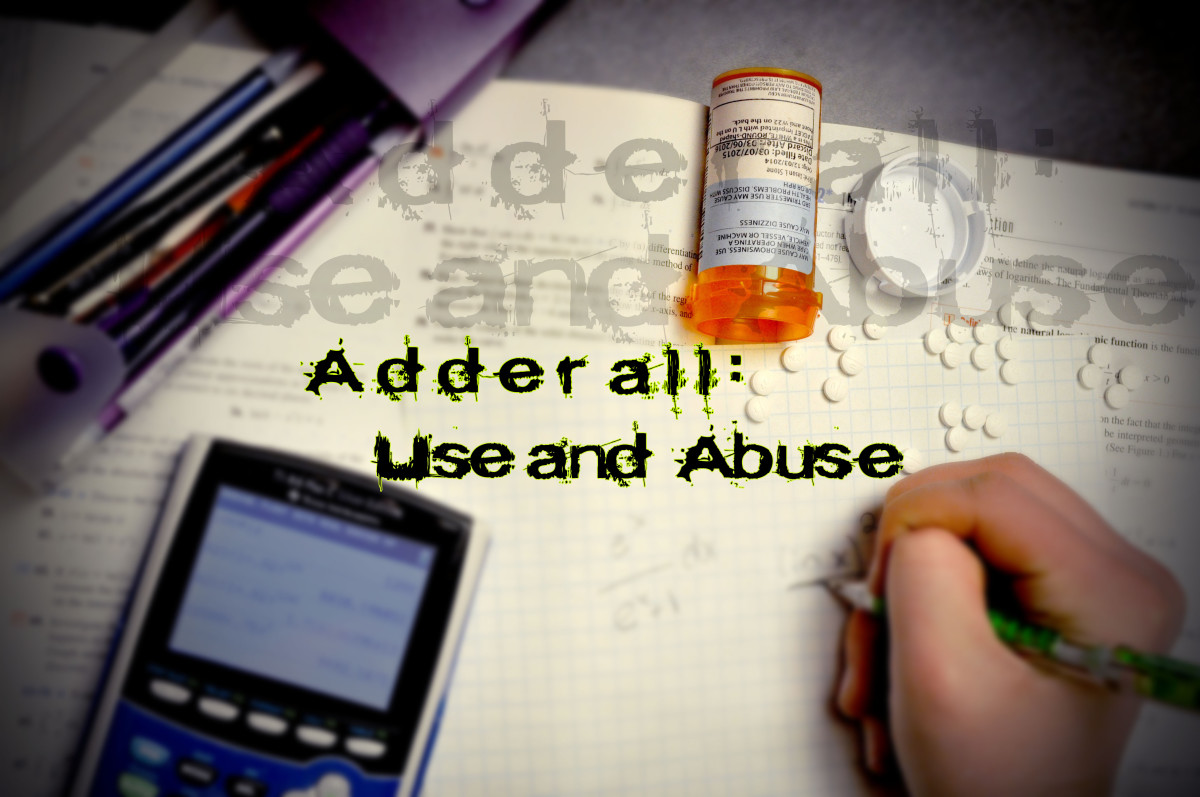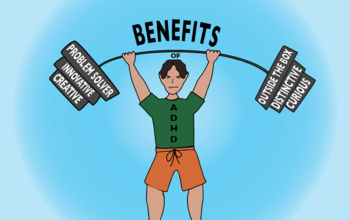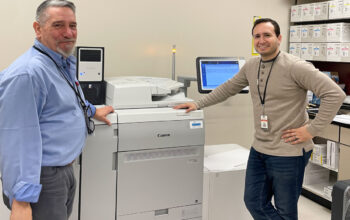Emilia Savini
Features Editor
@ESaviniCourant

Pulling into the parking lot at 7:26 am, he anxiously recited chemical formulas that he needed to memorize for a chemistry test first period. His hands anxiously pulled the keys out of the ignition. He looked at the Brown University lanyard that held his car keys. I gotta get the grades to get into Brown, he thought. Scampering into the building, he made it to class just as the bell rang. He suddenly realized that in the few minutes it took him to cross the parking lot and climb the stairs to his classroom that he had already forgotten the chemical equations.
Meandering into the parking lot at a punctual 7:15 am, she turned off her car and stared at her phone, scrolling through her Instagram feed. She was ready to take her Chemistry test first period; she had spent hours memorizing chemical equations the night before. She pulled her prescription medication out of her backpack and she took a swig from her UVA water bottle, swallowing her daily dosage of medication. I don’t know what I will do if I don’t get accepted to UVA, she thought to herself. Stepping out into the cold, she marched into NCHS and arrived at her test with five minutes to spare.
The drug was not Claritin or DayQuil; it was Adderall, an amphetamine and dextroamphetamine, most commonly prescribed for Attention Deficit Hyperactivity Disorder (ADHD) and narcolepsy. According to everydayhealth.com, Adderall affects the balance of chemicals in the brain and nerves that are associated with impulse control and hyperactivity.
There has been a recent trend of students getting their hands on Adderall and other medications like it with or without a prescription. Individuals who take Adderall without a prescription often do so seeking relief from their heavy workloads and busy schedules. A heightened concern from adults about adolescents using prescription drugs has clashed with such high school students who use medications like Adderall to give them extreme focusing abilities and improve performances on tests.

In a public school setting, school nurses meticulously supervise prescription medications and their usage among prescribed students. School nurse Josie Davies stresses the importance of students receiving a thorough evaluation from their doctors before seeking a prescription for concentrational issues like ADHD, “In order to have a very thorough and accurate diagnosis, you not only need to go to your pediatrician, but you also need to undergo psychological and/or neuropsychological testing,” she said. “I would say that the majority of the students who we are aware of who take Adderall, use it properly with effective results and with a plan of termination.”
According to everydayhealth.com, Adderall is known to be highly addictive and therefore requires a specific regimen that will minimize the chances of drug dependency. School psychologist Sandra Warkentin feels students and families should seek other supports before turning to prescription medications. “Most parents are very vigilant about making sure that medication is the last resort, and they will make sure that they have really tried counselling or other strategies like that before they resort to the medication,” she said.
As junior and senior year approach, many students find themselves swamped with extracurriculars and heavy workloads. Ms.Davies recognizes that stressors from school and other activities can be factors in a student’s decision to pursue medication for concentrational issues. “I think that stress or anxiety precedes the use of medications like Adderall,” she said. “For students who are struggling with focusing, concentration and the ability to sit quietly and take in information, I think that they can become stressed or anxious when they are unable to do that.”
Senior Jason* experiences immense stress from his school work and has used Adderall unprescribed when he finds himself needing to complete several assignments which require extreme focus. “I’m usually a huge procrastinator, but when I take Adderall, which is only on days when I have a bunch of work, I find myself working nonstop,” he said. “I can work for eight hours straight without stopping, no exaggeration.”
For Paul*, a junior who has been using prescribed Adderall for about four years, the medication increases his ability to concentrate. However, he also experiences other side effects that interfere with his behavior. “When the medication first kicks in during the morning, I feel less social and that I don’t necessarily have the same energy level as I normally would,” he said. “My friends say it’s obvious when I take my pills because I go from being an obnoxious energetic person, to a much quieter, less social person.”
Adderall has the potential to impair one’s thinking or reactions. As an unprescribed Adderall user, Jason* notices that the medication affects his driving in positive and negative ways. “It makes me a psychotic driver, not in a bad way though; I actually feel like I am more alert when I drive on Adderall,” he said. “That being said, I notice that I also drive much faster, because I feel like I’m a Nascar driver.”
A common side effect of Adderall is a loss of appetite, a symptom which Paul* regularly experiences when taking Adderall. “When I take my pills I almost have to force myself to eat to avoid splitting headaches during the day,” he said. “Your body doesn’t really want to eat or drink much more than a water and a cookie, but if you don’t eat, you feel nauseous and get bad headaches.”
Not only does Adderall limit one’s appetite, but it also can cause shakiness and hot flashes for prescribed users like sophomore Mary* who has been using Adderall for a year. “When I wake up, I’m usually tired and hungry but as soon as I take Adderall, the hunger starts to fade and my hands become shaky,” she said. “The shaking wears off after an hour or so, but sometimes I get hot or even sweaty. Once it fully kicks in though, I feel fully awake and motivated to do well at school.”
While there may be some negative side effects for Adderall users, the increased concentration can benefit prescribed users like Paul* who sees an improvement in his football skills. “On multiple occasions I have noticed an improved athletic performance from my medication,” he said. “I have found that my attention to detail is much better, and I can easily recall plays and techniques much more quickly when I’m on my medication.”
Caffeine can increase the side effects of Adderall. As someone who normally experiences shakiness when using Adderall, Mary* has had to cut coffee out of her diet in order to keep her shakiness under control. “I don’t have to cut anything out of my diet except coffee,” she said. “If I drink coffee within the first few hours of taking my medication, I feel sick and the shaking lasts longer than it normally does.”
For those who struggle with anxiety or other emotional issues, the use of Adderall can heighten the presence of those emotional issues. Junior Taylor* who was prescribed Adderall about four months ago, noticed that Adderall has most directly impacted her anxiety. “The anxiety affects my daily life more than any of the other side effects,” she said. “It can sometimes make me feel very uneasy and, at times, overwhelmed.”

Ms. Warkentin recognizes the negative effects that medications like Adderall can have on emotional issues when misused, but she wants students to recognize that not all of their stress and anxiety is unhealthy. “It is important to understand that there is healthy stress and there is unhealthy stress,” she said. “Everyone always talks about anxiety and stress and they automatically think they are horrible things, but the reality is that stress is a sign that you care about learning. Healthy stress motivates you to work hard.”
On the flip side, stress can become unhealthy if a person begins to show certain symptoms. Ms. Warkentin notes that those who struggle to cope with unhealthy stress may turn to drugs as an escape. “People experiencing unhealthy stress: sweating, shaking, racing thoughts, those kinds of symptoms, may turn to drugs and that is a bad thing because taking medication illegally will not help them,” she said.
While the majority of people look down upon the abuse of prescription drugs as a studying facilitator, a small percentage of people surveyed by IMS Health, a health care information company, believe that the misuse of prescription drugs is socially acceptable if it is geared towards improving academic performance. According to IMS, “About 26 percent of teens surveyed stated that the use of prescription drugs such as Adderall was acceptable when the drug was being used as a ‘study aid’.”
Senior Matt* has taken up the habit of using Adderall unprescribed during periods of excessive stress and academic rigor. “I’ve been taking Adderall for midterms and finals since sophomore year,” he said. “It makes me infinitely more focused and able to do whatever task I need to complete.”
As a junior, Jordan* feels immense pressure to perform well on SATs and has used Adderall unprescribed to help him focus his efforts. “I have really only used Adderall a couple of times before and that was for studying for the SAT,” he said. “I noticed that it made it easier to focus and stay on task while studying.”
To combat the stress and pressure of schoolwork and college-prep, School Psychologist Maria Calcagni recommends that students study gradually so that they don’t resort to cramming the night before a big test or taking unprescribed Adderall. “Research tells us that cramming is not going to help you learn the material. It is the studying that you are doing along the way that is really going to help the information sink in,” she said. “I recommend that students take a proactive approach to their workload so they are not so overwhelmed with stress that they turn to unprescribed medication to try and help them focus.”
For those who are currently turning to prescription medication as a coping tool for school-related stress, Ms. Davies encourages students to seek out support from parents and faculty. “We would encourage students who might not be using Adderall or other medications properly to have conversations with their parents,” she said. “I would also suggest that they search for outside sources of support, like seeing their guidance counselor here at school because that behavior is inappropriate, unhealthy and illegal, and it is not permitted in the school setting.”
Ms.Calcagni hopes to teach students the importance of handling stress properly and avoiding the use of prescription drugs. “We want to have students learn lifelong skills: how to deal with stress, how to balance work, social life and time for yourself,” she said. “Adolescence is the time when you are going to learn these things, and to rely on medication to do that in the short term is not going to give you lifelong coping skills.”




